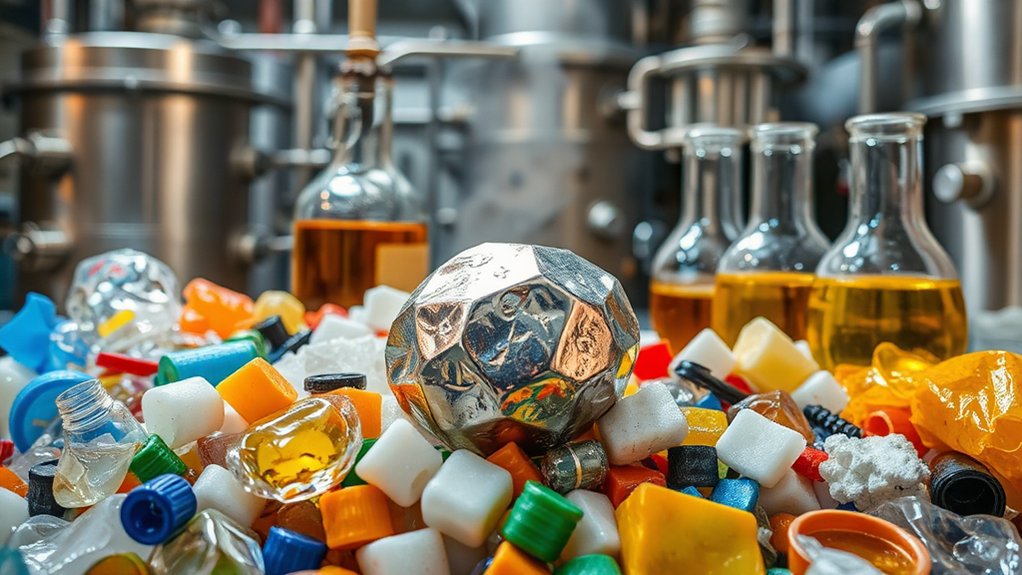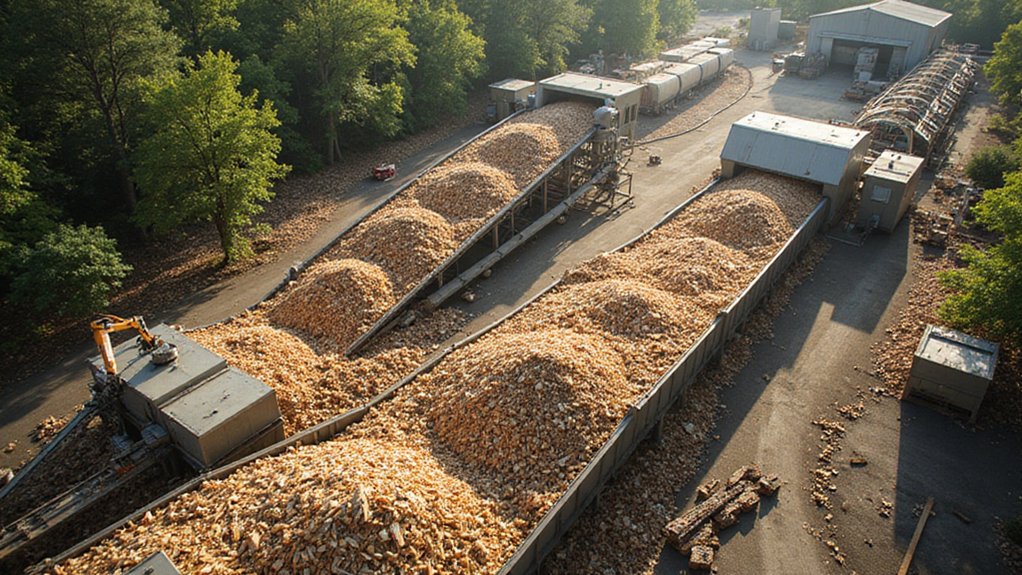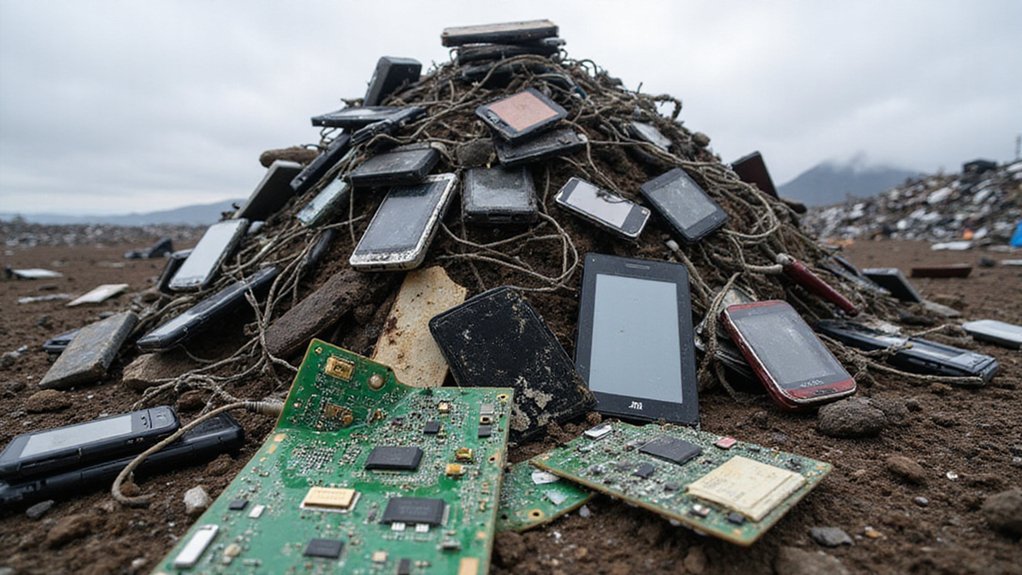While plastic waste continues to choke our oceans and overflow our landfills, a new wave of catalyst technologies is finally offering real solutions. Scientists have developed nickel-based catalysts capable of breaking down unsorted polyolefin plastics directly—no more tedious pre-sorting required. Let that sink in. The most annoying part of recycling? Gone.
These catalysts aren’t just convenient—they’re game-changers. They can process polyolefins contaminated with PVC, which has always been recycling’s nemesis. The conversion transforms worthless plastic junk into liquid oils and waxes suitable for higher-value products. And guess what? The catalysts are cheap and reusable. Industry execs are practically salivating.
Revolutionary catalysts crack recycling’s toughest challenge, turning plastic trash—even PVC-contaminated waste—into valuable oils. Cheap, reusable, and irresistible to industry.
We’re talking about polyethylenes and polypropylenes here—nearly two-thirds of all plastic consumed globally. That’s a lot of potential garbage transformed into something useful. The Ru/zeolite-Y catalyst takes things further by combining with water to increase carbon efficiency, producing actual gasoline and diesel fuel. Not just burning plastic for energy. Actually making fuel from it. Unlike geothermal energy, which offers minimal land use compared to other renewables, plastic recycling facilities require significant industrial space.
Life cycle analyses show this isn’t just eco-fantasy. It’s commercially viable at scale. Less plastic in landfills. Less plastic in oceans. More fuel in tanks.
Biochar-based catalysts add another weapon to the arsenal. They’re cost-effective with fancy pore structures and active surface functional groups. Whatever that means. The point is, they work—converting plastic waste into liquid fuels while supporting UN Sustainable Development Goals.
With global plastic consumption increasing by 1.5 million tons annually and less than 10% currently recycled, these technologies couldn’t come at a better time. Research from Seoul National University demonstrates an impressive 96.9% conversion rate of polyolefin waste to valuable fuels. Honeywell’s UpCycle Process alone could triple recyclable plastics. That’s massive.
NIR spectroscopy rounds out the transformation by enabling rapid, automated identification of plastic types. The unprecedented single-site molecular design allows for precision in breaking carbon-carbon bonds with ten times less catalyst required than traditional methods. The entire system—from sorting to processing—is getting a technological overhaul.
The recycling holy grail? Maybe we’ve finally found it. About damn time.
References
- https://www.sciencedaily.com/releases/2025/09/250902085150.htm
- https://scitechdaily.com/plastic-pollution-revolution-new-catalyst-technology-converts-waste-into-valuable-fuels/
- https://www.nature.com/articles/s43247-025-02286-1
- https://uop.honeywell.com/en/products-and-services/upcycle-plastics-recycling
- https://www.nirlab.com/plastic-recycling-revolution-nir-spectroscopys-transformative-role/









